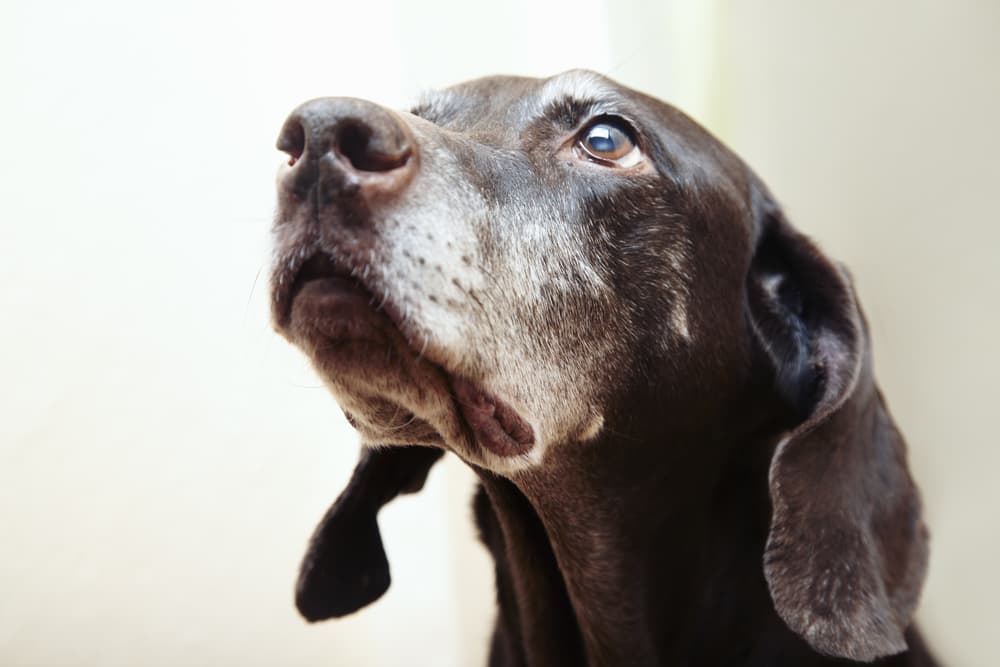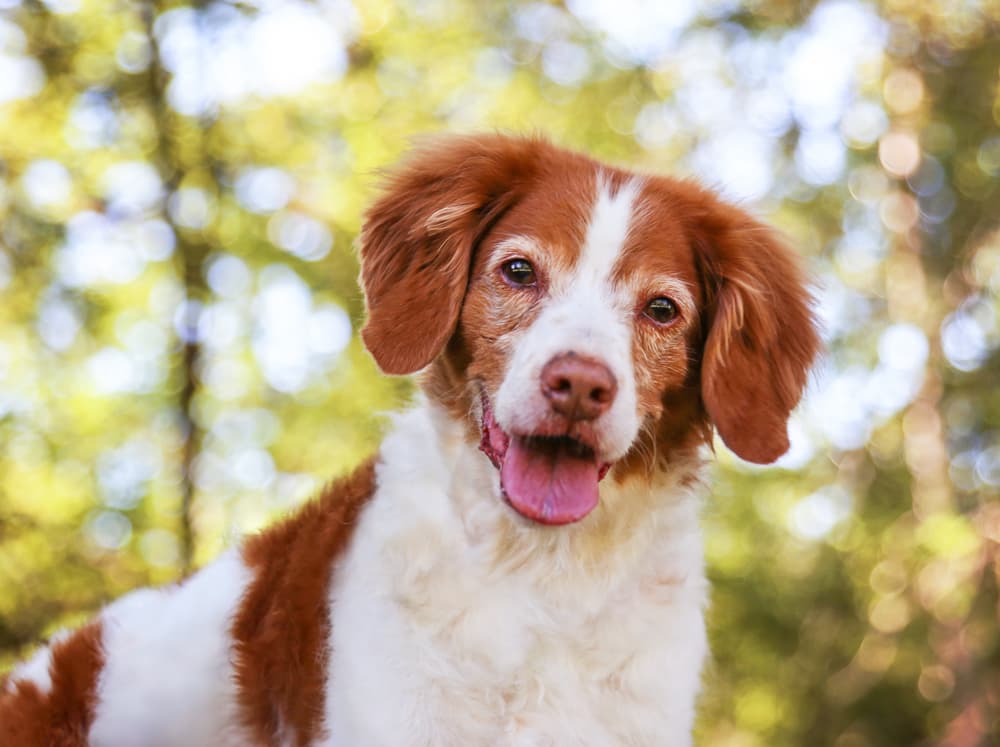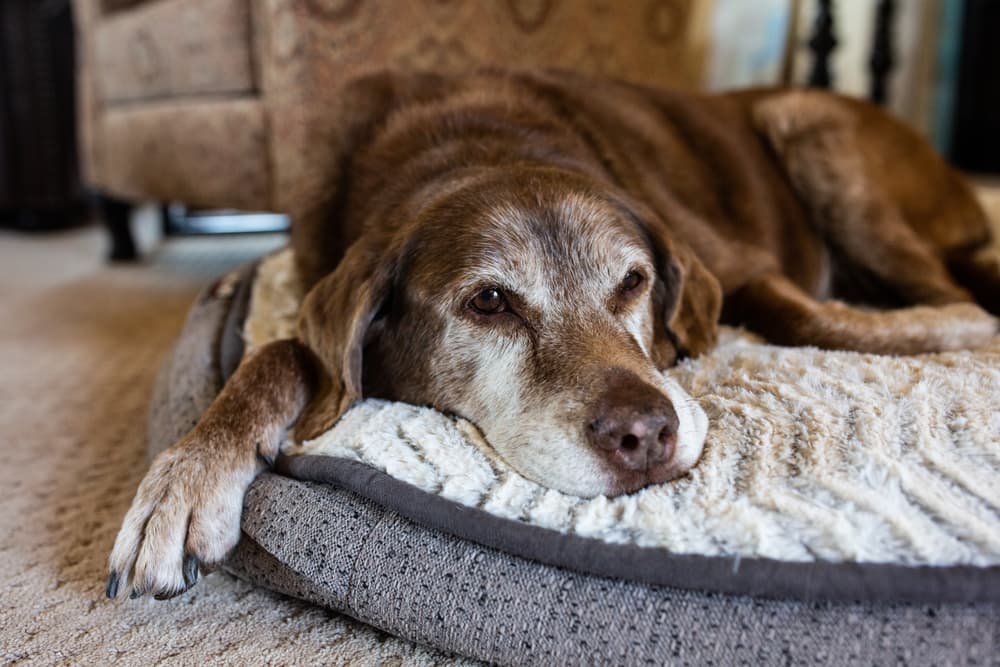Senior Dog Adoption Checklist

If you’ve been scrolling through doggy adoption pages, you’ve likely noticed a sad reality: A large portion of dogs in need of a forever home are seniors aged 7 and up.
“There are many amazing old dogs waiting in shelters right now for someone to bring them home, and nobody is more grateful or loving than an old dog who knows he’s gotten a second chance,” says Lisa Lunghofer, executive director of the Grey Muzzle Organization, a nonprofit that provides funds and resources to support the welfare of older dogs in senior dog rescues, sanctuaries, and shelters.
Want to add an old boy or girl to your family? Learn everything you need to know about senior dog adoption, plus how to prep your home for an older dog.
Reasons to Adopt a Senior Dog

Sure, puppies are fun-loving and playful. But senior dogs are often housetrained, well past the chew-everything stage, more laid-back, and easier to live with, says Lunghofer. If you’re an old soul, enjoy hanging out at home, or prefer leisurely walks over runs, a senior dog could make a great match for your lifestyle.
Another pro you might have yet to consider? Many shelters offer reduced adoption fees for senior citizens or anyone up for taking home an older dog.
Finally, there’s the undeniable feel-good factor of rescuing a senior dog and helping them to make the most of their golden years.
Adopting a Senior Dog: Things to Consider

No matter how much you want to take an old boy home with you, it’s important not to take senior dog adoption lightly. Older dogs often need extra TLC, and they’re best off with well-prepared pet parents.
Here are some helpful questions to ask yourself before you send in an application for an older dog:
Am I prepared for twice-yearly veterinary appointments and potential health issues? On top of regular exams and vaccinations, some senior dogs may have expensive medical issues like dental disease. Make sure to ask for information on blood test results, previous treatments, and health needs before adopting, suggests Lunghofer.
Could I provide all of the necessary accommodations for a senior dog? Older dogs may need special food, medication, supplements to ease joint pain, and senior-friendly adjustments to your home, says Dr. Judy Morgan, a holistic veterinarian.
Can I handle a potential cancer diagnosis? Sadly, nearly half of all dogs over the age of 10 will develop cancer [1]. While this is no fun to think about, it’s important to be up for handling this possibility emotionally and financially.
Preparing Your Home for a Senior Dog
Before you bring an older dog home, you’ll want to make your space as safe (read: accident-proof) as possible.
Here’s what to do:
- Use gates. Set up gates to block off no-go zones like steep stairs or the kitchen.
- Update stair safety. Apply grip strips or lay down rugs to make stairs and slippery floors safer.
- Secure medication. Choose a secure place to store medication, supplements, and dog food (and consider dog-proofing cabinets if you have a food-obsessed breed like a Labrador!).
- Adjust your dog’s environment. Move objects a dog with poor eyesight or coordination could run into or trip over (like dumbbells, tables with sharp corners, and vases).
- Use pee pads if needed. Designate spots in each room for pads if the dog struggles with incontinence.
- Create comfort. If possible, create many comfy resting spots throughout your home with orthopedic dog beds and warm blankets.
Senior Dog Adoption Checklist

Finally, make sure you have all of the veterinarian-approved supplies, tools, and treats you’ll need to make your senior dog feel loved. These tools may not all be needed immediately upon adoption but are good preparation for any house with aging dogs or those with limited mobility.
Dr. Morgan recommends all of the below:
A Comfortable Dog Bed
An orthopedic dog bed (or a few!) with memory foam to cushion sore joints and reduce pain and discomfort from arthritis or other health conditions. Pro tip: Look for dog beds with a zip-off cover for easy cleaning.
No-Slip Socks or Booties
Slip-resistant dog socks or booties help prevent falls on slippery floors.
Ramps or Dog Stairs
Sturdy, no-shake ramps or stairs for couches and beds can prevent wipeouts and injuries when hoping and jumping from furniture.
A Lifting Harness
Especially if you have a larger dog, consider purchasing a lifting aid like a harness to help your dog in and out of the car or up and down stairs.
Joint Supplements
Since arthritis is a common condition in older dogs, joint supplements that contain omega-3 fatty acids or glucosamine and chondroitin can help ease inflammation and cut down on joint pain.
The Right Dog Food
Talk to your veterinarian about senior lifestage dog food for your dog’s age and health status (consider soft food over kibble for dogs who have lost teeth or have sore gums).
Adopting a senior dog can take some extra planning but the unconditional love you will receive in return is more than worth it.









